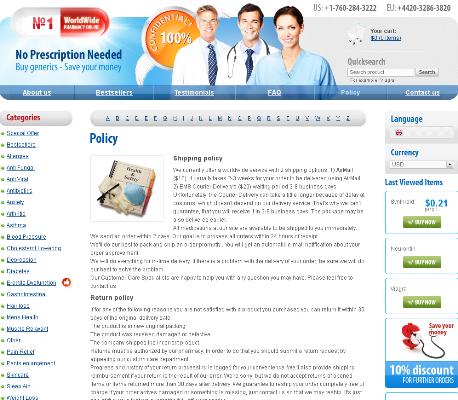What Is Robaxin and Why Is It Prescribed
Robaxin, the brand name for methocarbamol, is a muscle relaxant commonly recommended to ease discomfort caused by painful muscle spasms or injuries. Physicians often turn to Robaxin for patients recovering from strains, sprains, or back pain, since it helps reduce muscle tightness and improves mobility. Rather than acting directly on the muscles, Robaxin works by depressing the central nervous system, leading to a general calming effect that helps the body heal.
Its prescription is usually part of a broader treatment plan, which may include rest, physical therapy, or other medications. Robaxin can offer relief during the most uncomfortable phases of recovery.
By providing this support, Robaxin allows people to participate more fully in rehabilitation and return to normal activities sooner. However, it’s important to use it under close medical supervision.
| Generic Name | Common Uses | How It Works |
|---|---|---|
| Methocarbamol | Muscle spasms, injuries | Central nervous system depressant |
Understanding How Robaxin Affects Your Body

When you take Robaxin, your body absorbs its key ingredient, methocarbamol, which works by depressing the central nervous system. This action helps to relax muscles and ease pain, but it can also result in slowed brain function. For many, this translates to an overall sense of calm and relief from spasms, making it easier to move and perform daily activities without discomfort.
However, this same calming effect can impact alertness, coordination, and reaction time. Some people may feel unusually tired, lightheaded, or even mentally foggy while on Robaxin. These subtle changes can creep up unexpectedly, affecting how safely you can perform tasks that require focus, like driving.
Drowsiness and Driving: the Hidden Danger
Imagine cruising down the highway when, out of nowhere, fatigue sets in. This isn’t just a bad night’s sleep—it could be a side effect of taking robaxin. Many people don’t realize just how quickly muscle relaxants can slow reaction times and cloud alertness.
Even a brief lapse in focus behind the wheel can have serious consequences. Robaxin is designed to ease muscle tension, but its calming effect may cause unexpected drowsiness. Stay aware of how you’re feeling before you drive.
Not everyone reacts the same way to robaxin, making it even trickier to predict its impact. If you’re new to the medication, pay close attention to signs of sleepiness or mental fog. Your safety, and the safety of others, may depend on your vigilance.
Recognizing Warning Signs before Hitting the Road

Before starting your engine, take a moment to truly check in with yourself. Robaxin, a muscle relaxant, can sometimes sneak up with side effects like sleepiness, sluggish thinking, or dizziness. Ask yourself: do you feel more tired than usual, or is your mind not as sharp as it should be? Even subtle symptoms can affect your reflexes and decision-making on the road.
Watch for signs like blurred vision, delayed reactions, or trouble focusing. These may not always be obvious, but ignoring them could put you and others at risk. If any of these warning signals are present, it’s best to postpone your drive and stay safe.
Tips for Staying Safe When Taking Robaxin
Start each dose of Robaxin only when you’re sure you don’t have to drive right away. Small changes in your daily routine, such as planning errands for later in the day, can help minimize risks until you know how the medication affects you.
If you must be on the road, make sure you’ve had plenty of rest the night before. Avoid alcohol, as combining it with Robaxin can impair your coordination and alertness.
Always inform your doctor about any other medications or supplements you’re taking, since interactions can increase drowsiness. If possible, travel with a companion who can take over the driving if you feel unwell.
For reference, here’s a quick checklist to keep in mind before getting behind the wheel:
| Checklist for Safe Driving on Robaxin |
|---|
| Wait and observe how you react to your dose |
| Avoid combining with alcohol or sedatives |
| Be well-rested and alert |
| Seek a ride if feeling drowsy or dizzy |
What to Do If You Experience Side Effects
Imagine you’ve just taken your dose of Robaxin and now notice unexpected dizziness or an overwhelming sense of fatigue. Don’t ignore these signals—your body might be telling you it’s reacting to the medication. The smartest step is to stop any activity requiring focus, especially driving. Reach out promptly to your healthcare provider to report symptoms, as adjustments to dosage or an alternative medication might be necessary.
If symptoms are severe, such as difficulty breathing or a rash, seek emergency help right away. Always keep a list of your medications with you, in case medical professionals need quick access to your history. Prioritize your safety and don’t take risks.

